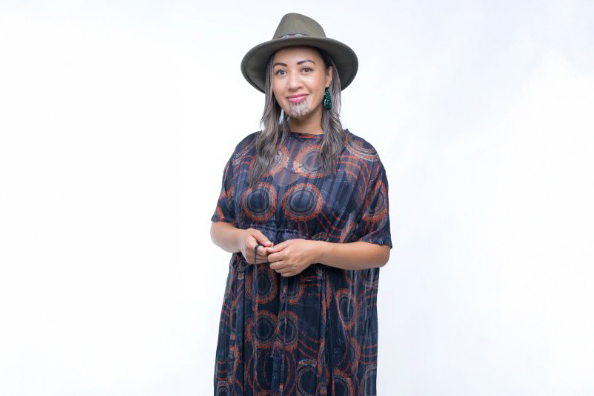At 72 years young, Sagan Rama still finds time to make a bit of mischief.
The Gujarati Ngāti Apakura truck driver retired from the concrete industry only to realise he missed the work. And even though he's an employee rather than a business owner now, he still calls the shots.
"It's Mahuru Maōri," he tells his co-workers.
"Talk to me in Māori or don't bother talking to me at all."
Thanks to a Catholic Priest who hailed from the Hokianga, it's that attitude that saw him enrol in Te Ara Reo Māori at Te Wānanga o Aotearoa in the first place.
"I had a lot of inspiration from Pā Henare Tate. I'd go to hui and feel quite inadequate and he would always tease me to 'just do it'. Now I've come to realise it's not about brain power, it's about ngakau power."
That's helped in his voluntary work too - providing some Māori influence as a director on the board of drug and alcohol rehabilitation centre The Retreat in Onehunga.
"I'm about the people. There's an epidemic out there and when they see a Māori face, it gives them some inspiration."
Sagan grew up in Otāhuhu, speaking Gujarati from his Indian father and te Reo Māori from his Tainui mother. He plans to visit his dad's village of Machad one day and says despite the distance, the cultures have many things in common.
"Indian people were colonised before us and although my father was a Hindi who could korero Māori, one of his most prized possessions was his British passport."
However, when it was time for Sagan to start school he couldn't speak any English and he got bullied because of it. By the time he was 12 he says he'd had enough and ran away from education altogether.
Coming back into learning through Te Wānanga o Aotearoa wasn't difficult though, because his first kaiako, Gordon Katipa, was a former work colleague.
Sagan had encouraged Gordon to go and learn his language after he expressed concern that, with kaumatua dying, there would be no one left to speak on his marae.
"I said to Gordon, 'Why don't you sit on the pae?'"
"He said 'I can't speak Māori'. 'Well there's your answer,' I told him."
When he eventually enrolled into Gordon's Level 2 Te Ara Reo Māori programme, he too discovered his passion and commitment for te Reo Māori.
"What pre-empted that was my mokos," he says.
"They'd asked me questions and I just wanted to be able to answer them more spontaneously - so we could have a conversation."
While one was the kaea of his kapa haka roopu at school and another is now a host on Māori TV, he has 34 more mokopuna and 12 great-grandchildren to keep up with too.
To help, he's now doing Te Ara Reo Māori Level 4 and is looking at picking up a computing programme next.
"I feel comfortable with my kaiako. The bottom line is, you're never too old to learn. People use age as a mindset and say 'I can't do this' - they create their own limits. While I'm still active and my mind's still active I'm just going to do it. After all, I'm still a haututu."




































